Call Live Support
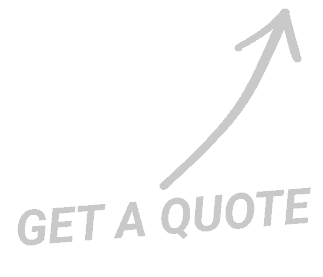

For senior Canadians, reverse mortgages offer unique opportunities to feel secure in retirement. Understanding how home equity lines of credit differ from reverse mortgages is essential, especially if you hope to qualify for a reverse mortgage.
Learn more about reverse mortgage basic facts and all about mortgages in Canada in this comprehensive guide.
Get money for what you already own with a reverse mortgage. Homes are meant to be an investment. However, if you want to retain a place to live, the money you have invested in the home seems unreachable.
With a reverse mortgage, you can get cash for the home you have already paid for, while still living in it.
A reverse mortgage permits homeowners over the age of 55 to take a loan for a percentage of the value of their home. This goes up to 55%. This money is yours free to spend.
You have already paid into and purchased your home. With the aid of a bank, you now get that value back in cash, while the bank has a stake in the sale of your home in the future.
Many people use reverse mortgages to finance part of their retirement. The loan is repaid when you sell the home or pass away and the home is sold from your estate.
There are many benefits to taking a reverse mortgage, including tax-free money and no monthly interest payments. In comparison to things like home equity lines of credit, reverse mortgages may be the answer you are looking for. You can get the value directly out of your home without selling it.
Wondering how does a reverse mortgage work in Canada? A reverse mortgage works by having you apply to a lender for a mortgage.
In a traditional mortgage or home equity line of credit , you would take out a loan from the bank’s funds that you immediately need to begin paying back. In reverse mortgages, however, you take a loan from the equity you have already paid into your own home.
You will receive these funds and be able to spend them on anything you want. This is why they are used for retirement funding. They can be a great way to help with living expenses, medical bills, and enjoying your retirement.
Reverse mortgages permit you more money the older you are. While you can take them out as early as 55 years old, there is a financial benefit to waiting to take them out.
For lending you the cash equivalent of the equity, the bank will charge you interest over the length of the mortgage. The bank retains an interest in your home being sold, as this is when the mortgage and its interest will be repaid all at once.
Is a loan a lump sum? Yes, your reverse mortgage can be a lump sum. If you prefer, you can split payments over several years. You will also likely need to pay for an appraisal at the beginning of this process.
Qualifying for a reverse mortgage depends most significantly on your age. Only people over 55 qualify for a reverse mortgage, and this includes both spouses owning the home. It is designed to work as a retirement funding option and can provide extra security for those hoping to pad out other funds.
Learning how to qualify for a reverse mortgage includes getting familiar with requirements. Reverse mortgages are typically based on the location of the home and your most recent appraisal.
Your age and the amount you have already paid into your home are also considered. Most seniors with value in their homes will easily meet reverse mortgage requirements. In the case of a CHIP reverse mortgage, a home’s value should be at least $150,000.
Unlike other types of home equity lines of credit, you do not need to verify your income with the lender.
The home you wish to mortgage must also be the one you live in as the main home. If, for example, you have a more valuable summer home, you cannot take the reverse mortgage out on that home.
Reverse mortgage rates tend to be higher than a typical mortgage, coming in around 3.89% to 6.34%. You can use a reverse mortgage calculator to get a more accurate understanding of the potential outcomes of a reverse mortgage. These can help you find the best mortgage rates in Canada.
There are several reasons for higher rates when it comes to reverse mortgages. These are both strategic as well as influenced by external forces, and result in the rates being slightly higher to account for any surprises.
Keep in mind that a lender is offering you a large chunk of funds over an undated period of time. For them to be sure that they will at least break even on this loan, they will need to have higher interest rates. These higher rates help with inflation and can keep the bank solvent in the event your home loses value.
Government subsidies are likely not available for funding in reverse mortgages. Other mortgage programs are influenced by government programs. These keep rates low for traditional mortgages. Traditional mortgages regularly have money coming in, which is part of the deal with the government programs.
Reverse mortgages, of course, only have money coming at their very end. So lower rates through government regulation are not available.
Your reverse mortgage contract may specify that they will not request more than the market value of your home. If your home has lost value due to fluctuations in the market over the course of your reverse mortgage, then the bank will absorb this cost. Higher interest rates help to keep them above water or breaking even on the mortgage.
Some of the benefits of a reverse mortgage include having a tax-free income that will not impact your Guaranteed Income Supplement or Old-Age Security.
The value of your home — which you own — already belongs to you. Through the bank, you are simply transitioning this value into cash to spend, while the bank becomes entitled to some of your future sale profit. This means that it should not affect other income calculations.
Is a reverse mortgage good? Yes, for some situations a reverse mortgage is ideal. Particularly for people who do not have to worry about retaining their home for their children or other family members, using the value of their home to fund their retirement can be a great idea.
If you are considering selling your home to get cash, think about a reverse mortgage instead. This allows you to live in and continue to care for your home on your terms, but have some fluid funds based on the equity you have already paid into it.
Repayment does not involve monthly payments. Instead, the value of the loan plus interest is due when you sell the home or when your estate discharges it. This lack of monthly payments makes the reverse mortgage preferable for some who do not want to have their money tied up.
Instead, those with reverse mortgages simply receive their sum and manage it over the years before the sale of their home. This provides some freedom in retirement that other funding options may not.
Even if your home loses value during the period of the reverse mortgage, you can choose a mortgage that prevents negative value. This way, you will not overpay for a home whose market value is now less than the mortgage you hold.
It’s important to understand home equity and how it relates to a reverse mortgage. Home equity is the value you have already paid into your home through an outright payment or a traditional mortgage. You can borrow lines of credit against this equity.
One line of credit HELOC, or home equity line of credit, allows you to take out money based on the value of your home. However, it does require you to verify your income.
A line of credit mortgage often requires regular interest payments. HELOC fees mirror the ups and downs of the market. However, interest rates lines of credit may be lower.
A home equity bank regular mortgage comes with many requirements. The benefit of a reverse mortgage is not having to jump through income hoops.
Taking a home equity line at 55 years of age is an option. But when there is no need to verify your income and no requirement of interest payments, why not choose a reverse mortgage?
Mortgage brokers age 55 and over clients want to work with are those that are willing to offer to reverse mortgages. Only a few mortgage institutions in Canada offer reverse mortgages.
If you are looking for a reverse mortgage lender in Canada, you will need to get in touch with the Canadian Home Income Plan (CHIP) or Seniors Money Canada.
Actual lending comes from HomeEquity Bank or Equitable Bank. HomeEquity Bank and Equitable Bank mortgages in Canada are the two main financial institutions equity loans like reverse mortgages come from.
Reverse mortgage Canada options include CHIP reverse mortgage. Backed by HomeEquity Bank, the Canadian Home Income Plan (CHIP) makes it possible for many homeowners to pursue a reverse mortgage. A CHIP reverse mortgage is a popular option for many shopping for reverse mortgages who are looking to work with HomeEquity Bank.
Are you concerned about making regular payments equity in your home? Since reverse mortgages leave a fair amount of equity in your home (likely 45% or more), you don’t have to worry about using regular payments.
Ready to apply for a reverse mortgage? Here are a few last things to consider before diving all the way in.
While a reverse mortgage is a great option for many people, go into one with open eyes. For families who want to hang on to an ancestral home, your beneficiaries would either need to sell the home to repay the reverse mortgage or come up with the funds to buy it themselves.
If it takes longer to sell the home from the estate than the terms of the mortgage permit, there must also be a plan in place to bridge these costs.
There is also interest on your loan. This is typical of any mortgage, but it is something that absolutely must be factored in when coming to the end of a reverse mortgage. Whether you will pay the interest after a sale or it will be paid out of your estate, allot enough funds.
Interest rates may be almost twice as high as a traditional mortgage. Interest will accrue over the length of the loan, so be prepared to cover this at the time of sale.
If at any point after you take out the reverse mortgage you want to borrow against the equity in your home, such as a home equity line of credit, you may not be able to.
Should you become unable to meet the terms of the mortgage, you may need to repay the loan back in full. Make sure to be extremely clear regarding any terms and your ability to adhere to them over the length of the mortgage.
Call us today to speak to a licenced mortgage broker.
Now that you are familiar with reverse mortgages, investigate more mortgages in Canada. Your home is a valuable asset, and by finding the best possible mortgage situation you can save yourself a lot.
Make the money you worked for work for you. Funding your retirement should be simple and fast when you have built equity into a home already.
Commit to following Mortgage Commitments mortgage coverage to learn more. We have all the basic guides you need to get familiar with mortgages in Canada. Let our guides walk you through the detailed worlds of reverse mortgages.
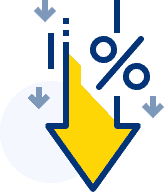
Get the best reverse mortgage rates from direct mortgage lenders.
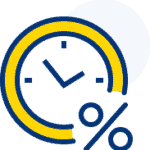
Get a fast mortgage approval and fast closing.
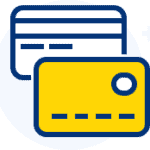
Good or bad credit? No problem. All credit history and type accepted.
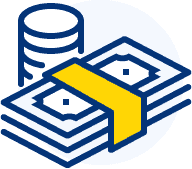
All income amounts and types accepted for refinancing.
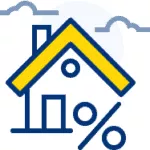
Equity based mortgage approvals for fast access to home equity.
A reverse mortgage program is easy to qualify for. You qualify based on equity and age.

Get your free Reverse Mortgage Quote

Confirm property value and existing mortgage details.

Get your reverse mortgage just 48 hours.

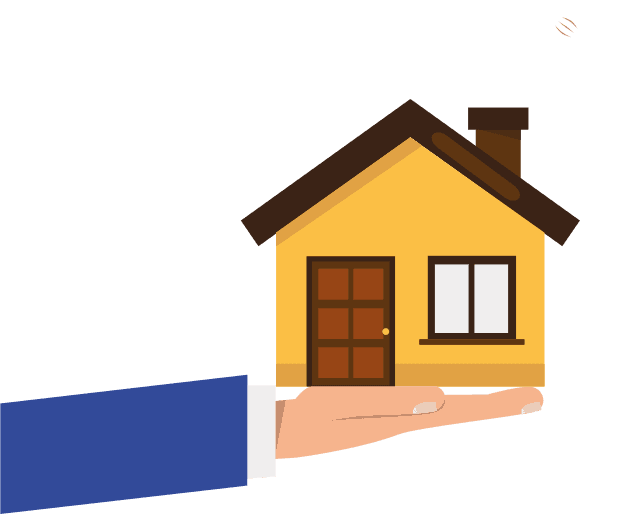
We take pride in taking the time and effort to match up every individual homeowner and homebuyer with the best mortgage financing options and rates. With access to more than 200 participating mortgage lenders, there are mortgage solutions for all types of borrowers. We listen and understand your mortgage and real estate goals, and find the best mortgage terms tailored to your specific goals to save you thousands of dollars on your new mortgage.

(No Obligation)